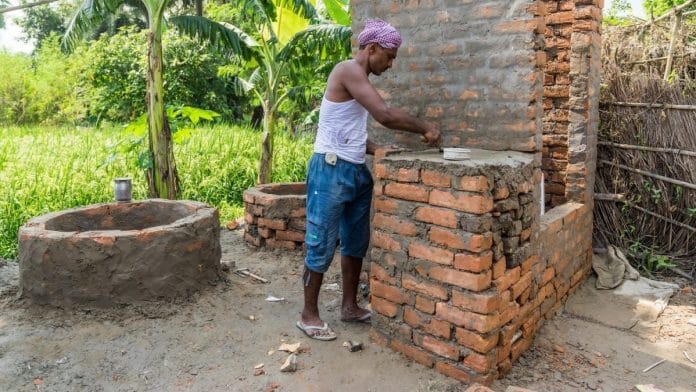On Gandhi Jayanti, we recall MK Gandhi’s timeless conviction: “Sanitation is more important than independence.” It was not a metaphor, but a call to action. It signalled that dignity, health, and discipline must form the bedrock of national progress.
It has been 11 years since the launch of the Swachh Bharat Mission, and India has made sanitation a people’s movement, or jan andolan. What began as Prime Minister Narendra Modi’s vision to make India Open Defecation Free has now grown into a culture of cleanliness, hygiene, and community ownership, reiterating the belief of “Swabhav Swachhata, Sanskaar Swachhata”.
The impact of the Swachh Bharat Mission is well known and has been studied by various organisations of repute, and the assets created under this programme also tell their own story. Under SBM-Grameen, over 11.5 crore toilets have been constructed and today more than 4 lakh villages have declared themselves as ODF Plus Model, which means they are also equipped with solid and liquid waste management systems and are visually clean.
The true impact of the SBM lies not just in these statistics, but also in the lived experiences of families in rural areas. This includes women in some places no longer having to walk long distances to relieve themselves, healthier children, cleaner water bodies where wastewater and plastics are better managed, and panchayats and women groups leading efforts to better manage waste.
The SBM-G program has evolved — from infrastructure to behaviour, from construction to long-term culture. The journey from ODF to ODF Plus Model has not been about ticking boxes, but about ensuring that households, schools, anganwadi centres, and public spaces reflect the success of the rural water and sanitation missions.
Cleanliness as sanskaar
Swachhata Hi Seva (SHS) — the annual SBM campaign with ‘Swachhotsav’ being this year’s theme — reminds us that festivals, fairs, and gatherings are not just about celebrations; they are also opportunities to practice responsibility and reiterate the thought of ‘Sanskaar in Swachhata’. This year, through the course of the campaign, it has been heartening to witness communities again adopting cleanliness as part of their culture, and not just as an afterthought.
Celebrating festivals responsibly with appropriate waste segregation systems, reduced usage of single-use plastic, and adoption of eco-friendly sanitation facilities through the course of SHS has been a true Swachhotsav — where we are not just celebrating, but institutionalising practices, making them a habit, which will gradually become heritage.
Also read: A social contract protected Indians abroad as the ‘model minority’. It’s tearing now
Sanitation and India’s growth story
As India positions itself as a key player in the global economy, sanitation and hygiene are not peripheral pieces; they are cornerstones. Tourists and investors judge India not only by airports, malls, and business centers, but also by the cleanliness of its towns, ghats, villages, and public spaces.
A clean temple precinct, a litter-free beach, or a heritage site with safe sanitation facilities makes visitors stay longer, enjoy more, and return. Swachhata is thus not only about pride; it is also about revenue and livelihoods for local communities
For investors, the availability of clean water, waste management systems, and hygienic living conditions for workers is a basic prerequisite. Sanitation is not just a social policy; it is also a form of economic infrastructure.
Fewer sick days, healthier children, and reduced disease burden free up family incomes and improve workforce productivity. This, in turn, feeds directly into India’s economic momentum. A nation that is clean is a nation that is investible and attractive to the world.
At the heart of the mission is jan bhagidari as SBM has always been a movement powered by people. In villages, Village Water and Sanitation Committees (VWSCs) and Gram Panchayats must continue to be the institutional anchors of this effort as they ensure that every household voice is represented in decisions around rural water, sanitation, and hygiene (WASH). This will help make services responsive, accountable, and sustainable.
The next chapter of SBM will continue to deepen the partnership with Panchayats, VWSCs, women’s collectives, and youth clubs. The SBM journey is not just about sustaining toilets or drains, it is about unlocking economic opportunities through sanitation. Panchayats near heritage and spiritual sites should be supported to maintain good sanitation facilities, ensuring that India’s cultural wealth is matched by civic pride.
Waste-to-wealth initiatives should be promoted and marketed to create jobs, income streams, and green enterprises. With clean surroundings, safe water, and reliable waste management, rural areas are attractive destinations for agro-processing, handicrafts, and local enterprises.
The focus of the mission must continue to be leveraging technology while creating both efficiency and employment, and also addressing the dignity and welfare of our sanitation workers/safai mitras. The focus must be on implementing more campaigns to promote mechanised handling of waste, enhancing access of sanitation workers to social security schemes and insurance, and providing education support for the workers’ families. A clean India must also be a just India that protects those who protect our hygiene.
As we celebrate Gandhi Jayanti and mark 11 years of the Swachh Bharat Mission, the vision is clear: making all villages Swachh Sujal Gaon, which integrate sanitation with water security, and taking sanitation beyond dignity and health by positioning it as a driver of growth and opportunity.
We must remember that swachhata is the first impression of India to the world, and it has the power to strengthen tourism, attract business, protect families, and build pride in our nation. In these 11 years, the Swachh Bharat Mission has stood for credible, lived outcomes. That is how we honour Gandhi’s vision, and that is how we build the India of tomorrow.
V Somanna is the Union Minister of State for Jal Shakti. He tweets @VSOMANNA_BJP. Views are perosnal.
(Edited by Aamaan Alam Khan)







Ours is a country that is full of street garbage. Swatch Bharat is just another failed scheme of socialist India.